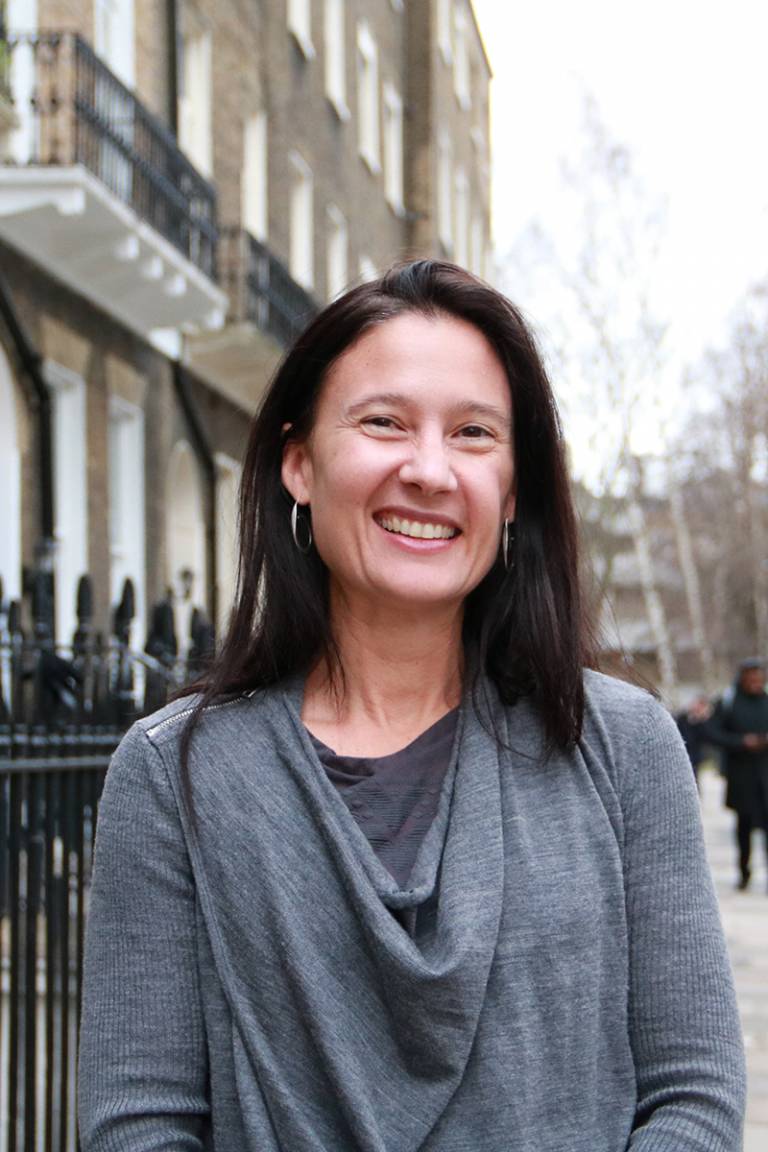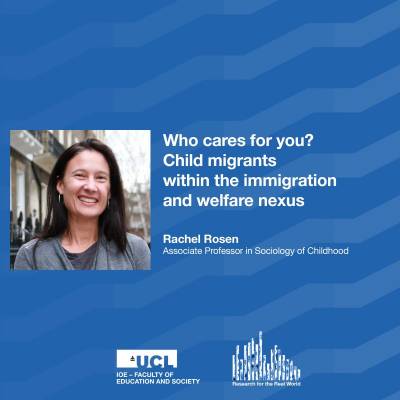Professor Rachel Rosen is Professor of Sociology in the UCL Social Research Institute at IOE.
Rachel, what attracted you to take up your position at IOE?
I’ve been working at IOE since 2014. I was, and remain, excited to be part of IOE because it is one of the founding centres of study globally in the sociology of childhood. I enjoy being able to draw on this tradition of scholarship, at the same time as developing new lines of research with colleagues around the world.
What's the most important thing you've learned from your students about the subjects you teach?
I find teaching immensely rewarding, so it is hard to name the most important thing that I have learned from my students. One thing I am constantly reminded of by my students is the value of asking: What is this knowledge for? Why does it matter? Who does it benefit?
Questions of social and economic justice lie at the heart of critical questions like this. They remind me that sociology has the potential to challenge taken-for-granted assumptions about who children are and what they can be.
It has the potential to not only describe, but also to explain and address, the persistence of inequalities in and between the diverse contexts my students come from. My students remind me of the transformative potential of sociological approaches to the world.
“One thing I am constantly reminded of by my students is the value of asking: What is this knowledge for? Why does it matter? Who does it benefit?"
What working achievement or initiative are you most proud of?
Before joining UCL, I was involved in several community-based participatory research projects led by grassroots organisations. These experiences confirmed for me that knowledge production happens in diverse spaces and modes, and that encounters between academics, activists, and ‘publics’, as the American sociologist Michael Burawoy puts it, can be very generative.
I am particularly proud that I have been able to bring this participatory, public sociology approach into my work at UCL. One example of this is the We Are Movers project, which brings academic research and lived experience of migration into conversation through collaborative arts-based methodologies.
I worked with staff and students involved in Refuge in a Moving World at UCL, and women and children from two local migrant organisations, to develop a series of images which prompt viewers to question reductive stereotypes of ‘the migrant’ and highlight the importance of solidarity and collective strength in a hostile environment. This mobile exhibit has been shown at London’s Migration Museum, UCL, and other local events.
What is the focus of your research and what benefits do you hope your discoveries and/or insights will bring?
My work is located at the intersections of sociology of childhood and materialist feminist thought, with a focus on social reproduction, migration and the impact of intersecting inequalities on children’s everyday lives. My current research with Sarah Crafter at the Open University explores separated child migrants’ experiences of care, and caring for others, as they navigate the complexities of the immigration-welfare nexus in England.
Policy, popular debate, and research often focuses on adult or state care to the neglect of children’s care for each other. But my pilot studies with UCL colleagues in the unofficial refugee camp in Calais, and in the UK with a range of professionals and child migrant organisations, indicate this neglect has meant that policies and practices designed to support separated child migrants can end up harming, excluding or discriminating against them. For instance, children who care for each other may be forcibly separated in foster care placements, go ‘missing’ when trying to reunite, or have their status as a ‘child’ questioned in a culture of suspicion.
We hope that our research will improve approaches to separated migrant children and develop more expansive understandings of childhood and care.
 Close
Close



